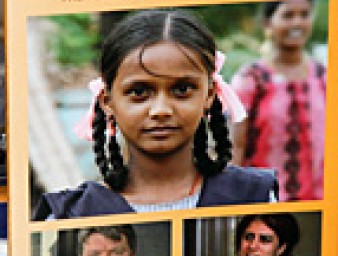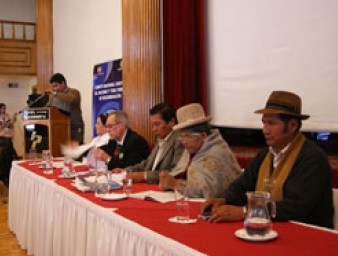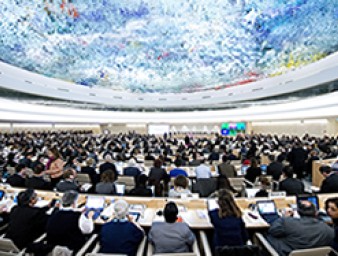Films help educate students about human rights
06 May 2015

“Movies are powerful,” said Elena Ippoliti, Human Rights Officer for the UN Human Rights Office. “Sometimes, young people can open their eyes more through an eight-minute film, than through a two-hour lecture.”
For a decade the Office has partnered with the International Film Festival and Forum on Human Rights (FIFDH in French) in carrying out this educational programme. The programme, which takes place during the annual film festival, provides screenings and discussions of a selection of human rights films for students mainly attending the secondary schools in Geneva.
In 2005, the Film Festival established the educational programme as a contribution to the World Programme for Human Rights Education, launched by the United Nations in that same year. The Office supports the programme in various ways such as by providing experts to participate in the discussions and helping the formulation of materials for teachers to use in the classroom, Ippoliti said.
Planting Seeds
Joining forces between the FIFDH and the Office was a simple idea, said Dominque Hartmann, who heads the Film Festival’s educational programme. A teacher himself, Hartmann, who has overseen the project since its start, said the idea was to try and expose the films to a wider audience. The festival was getting good audiences, but films were being seen by people who were already familiar with the issues. He said reaching out to schools seemed a natural fit.
“In the classroom, you have kids of all levels, orientations, politics, social classes, etc.” he said. “The kids could come here and hear something they never heard at home. And we are planting seeds in the ground and maybe they will become a plant.”
Hartmann believes that at least 10,000 students have participated in the education programme since its beginning.
Global as Local
Ippoliti said the education programme is also a chance for the Office to work at a local level in the headquarters host city of Geneva. “We, OHCHR Geneva, work at the global level. But by working with schools here, we also reach out to the local level,” she said.
Hartmann has also seen how giving an issue a human face can reach students. During the festival one year, one of the panellists on a discussion about child migrants was a child migrant based in Geneva. The young man arrived in the country when he was 13. At time of the discussion, he was 16 years old.
During the question and answer, one of the students asked the young man, what he had found most difficult about being in Switzerland alone. The teenager said mealtimes. It had been three years since had a meal with a family and he missed it.
“At the end of the screening a kid came up to him, crying, and said if he needed a family, he was welcome in his home,” Hartmann said. “And I know that that young man was invited to the kid’s house and had a family meal.”
6 May 2015



